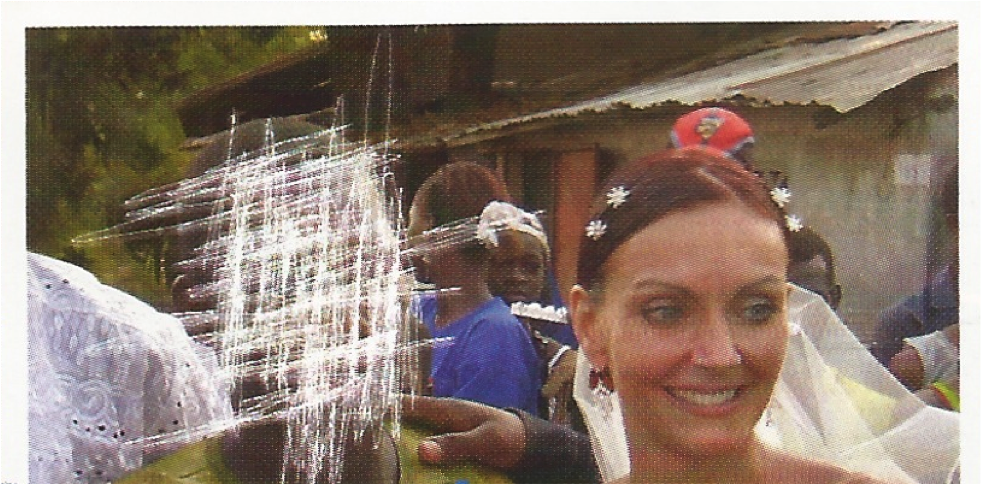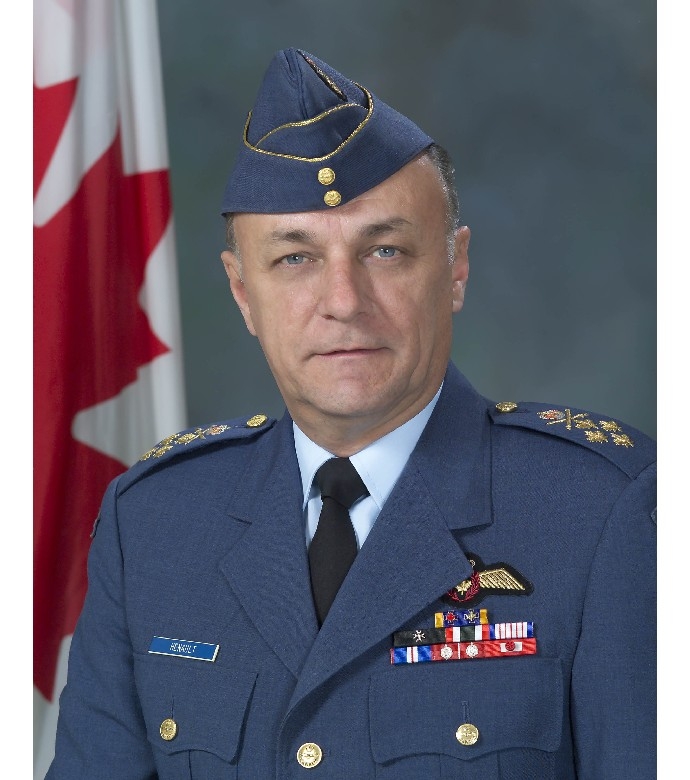
Heart Break & Entry into Canada
The evil scheme: Court an unsuspecting victim and develop a false relationship to gain access to a foreign country. Sound like something from a fictional novel? Unfortunately, it happens all too frequently and all too often the victims are Canadian men and women, like Lainie Towell.
Lainie is an artist who specializes in African dance styles. On an educational trip to Guinea, in 2004, she met Fode Mohamed Soumah. Two years later, the couple became engaged and were married in a traditional ceremony before hundreds of friends and family in Guinea. Two months later, she returned home to make preparations for her new groom’s acceptance as a resident in Canada. Later that year, Lainie returned to Guinea and, on December 31, 2007, the couple officially moved to Canada to begin their life together. However, after receiving all of his official residency documents, Mr. Soumah left the couple’s apartment, on January 28, 2008, and never looked back.
Towell was initially confused and hurt by her new husband’s departure, Soumah was, after all, the man she loved and she had committed the rest of her life to marrying him After trying in vain for several weeks to contact him through friends and family — she came to the realization she had been duped from the start. It seemed their relationship was nothing but an elaborate scheme to get Soumah to Canada. The greater problem appeared when Towell learned, as a sponsor, she was still responsible for her absent husband, despite the dissolution of the marriage. A component of sponsoring someone into the country is the sponsor’s acceptance of responsibility for any financial costs the government incurs through the provision of welfare or other assistance plans, for a period of three years. Was Towell gullible to have fallen for this scheme or could this happen to the average person? Unfortunately, Lainie’s story is not at all uncommon.
Cindy lives in Toronto and is a relatively new member of a group called Canadians Against Immigration Fraud. Cindy’s story is frighteningly similar to the account of Lainie Towell. She met her husband in the Dominican Republic while on vacation, in April 2003. They were married, in October 2004. In December 2005, he came to Canada and was gone by the end of January 2006. Cindy felt deeply ashamed and blamed herself terribly when she realized what had happened. She felt that she must surely be the one-in-a-million victim of this kind of crime but she would soon realize that it wasn’t the case. Each week, Canadians Against Immigration Fraud is contacted by new victims. These victims come from all walks of life and a wide range of ages. In fact, the only thing they consistently have in common is bring fooled by someone they thought loved them; con artists (at least) seeking easy access into Canada.
Both women believe Canada has become a target for people willing to get involved with this kind of scheme because it is so easy to get away with – especially when there aren’t any repercussions. Like many others, Cindy contacted Canadian Immigration authorities but was told that theirs was a case of marriage dissolution and there is nothing to be investigated. Even where there appears to be clear cases of fraud, such as the Canadian resident who was literally dumped at the airport the moment residency papers were put into the hands of the conniving spouse, immigration says it is still a case of marriage dissolution. There are no consequences imposed on the abandoning spouse but the sponsor remains responsible.
Lainie hopes in her circumstances things might be a little different. First, she has been very public about her situation and very vocal — contacting her MP, Canadian Immigration (CIC), the Canadian Border Services Agency (CBSA) and every media outlet she could reach. She refuses to hide what happened to her and has made this her cause, in part, because she wants to warn others from falling into the same trap. What potentially makes Lainie’s case different is that she believes she has evidence her groom committed fraud against the Canadian government through statements he made on his immigration papers. Defrauding the government does have repercussions. Towell says, she has proof Soumah fathered a child by another woman in Guinea during their courtship. He falsely indicated on immigration papers that he had no children living abroad. Accordingly, there may be grounds for immigration fraud but only if it can be proven the declaration was false. At the end of May, an official file was opened with CBSA, Lainie is hopeful the investigation will produce results. In the meantime, she must wait and hope Canadian officials do the right thing. The right thing, she says, would be deportation of the fraudster and severing of the sponsorship agreement that binds her. At the very least, she hopes for the latter.
Cindy says the time has come for Canada to take a tougher stand against this kind of fraud. Part of the problem, as she sees it, is that immigration tends to look at all of these cases as simple examples of marriage dissolution rather than investigating their validity. She cites several examples of marriages annulled by the courts (the courts of Canada have said the marriage did not exist in the first place) yet immigration still held the sponsor accountable to their initial agreement.
The government of Canada insists that marriage fraud is hard to prove; Cindy says this is only half the battle. She knows other countries have deterrents in place to prevent this type of fraud and wonders why Canada does not follow suit. For instance, waiting periods of three years are mandatory before permanent status is granted to an out-of-country spouse. Cindy says the government does not do enough to protect its citizens from becoming victims. Like Lainie, she actively warns Canadians to be more alert and vigilant about becoming involved with this kind of fraud. Her organization’s website (www.stopmarriagefraud.ca) provides a list of signs to watch for and answers questions about what to do if fraud is suspected. Cindy says the most important thing is to pay attention to the little signs. Though everyone wants to believe in love and faith, she says Canadians especially must exercise caution.
Mauril Belanger is the MP who serves in Towell’s ward in Vanier. He has written to Diane Finley, the Minister of Immigration, on Lainie’s behalf and says he has seen other similar cases in his riding. He is confident, in her case, the Canadian Border Services Agency will apply due process to get to the root of the matter. He also says he would support an investigation into current immigration policies as they relate to new spouses but cautions against across the board change.”There is always merit to reviewing what we do and how we do it but I wouldn’t necessarily support a new policy that made it harder for everyone.”Though in this case the MP has been called on by Towell to assist in severing ties with her spouse he has been called upon by others to help finalize or hurry along their marriage and citizenship plans. However, MP Belanger believes Canadians should be cautious. “As Canadians, we tend to be open-minded and although I would hate to see us lose a positive outlook, we should be wary of the possibility of marriage fraud for immigration purposes and be wary of exposing ourselves to such fraud.”
Roy Cullen is the MP for the riding of Etobicoke North. He has also become involved in this debate. A large Indo-Canadian population in his riding has brought the issue to his attention. It didn’t take long to realize the problem was widespread and disruptive to whole communities. When bringing a new spouse to Canada, the parties involved must prove the validity of the marriage to Immigration officials. He says this is often done through letters, e-mail, and photographs. He understands why the government may find it difficult to accept the claim of fraud because the marriage has already passed the scrutiny of Canadian immigration security measures.” In every society things happen in relationships — so it would be difficult to say whether the dissolution of a marriage is intentional or just a matter of circumstance.” He cites examples where one partner may leave the relationship because of spousal abuse. If the victim of the abuse was the immigrant, what would follow? Clearly the marriage should not continue but who would decide, and how, whether one existed in the first place? He says Canada has a very progressive Immigration and Refugee policy that opens the door for people to take advantage of the situation. Although the number of this kind of incident is uncertain, he believes it is definitely on the rise and would like to see something done. He has communicated actively with current Minister of Immigration, Diane Finley, and her predecessor, Monte Solberg. Although Solberg admitted in correspondence, dated 2006, this was an area of concern for him, nothing has really changed since then to resolve the matter.
Mr. Cullen posed an official question to the Minister in March of this year, trying to determine whether the Immigration Department had made any progress in resolving what for many of his constituents is still a relevant issue. The Parliamentary response from Ms Finley’s office reiterates the binding nature of the sponsorship agreement and states CIC has developed a new anti-fraud action plan with a look at improved training particularly in the area of marriages of convenience. The report further supported the challenge in determining marriage fraud versus the collapse of a relationship but said they would open official investigations whenever they were supported by evidence. A personal letter from Ms. Finley to Mr. Cullen reads, “Sponsors are ultimately legally and fmancially responsible for their sponsorship undertakings … (they are) a legally binding commitment that may not be cancelled, regardless of whether a relationship breaks down.”
For Canadian men and women involved in relationships with people in other countries the message is clear; you must be cautious and absolutely certain before you sponsor someone into the country, recognize the degree of your commitment, and understand that obligation will not be waived if the relationship fails.
By: Heather Seftel-Kirk









